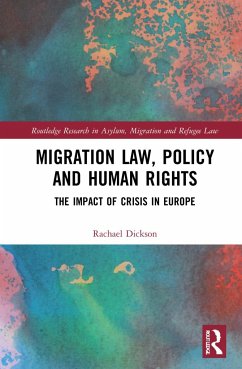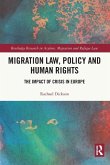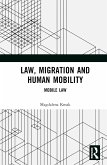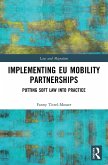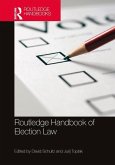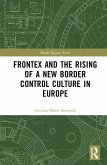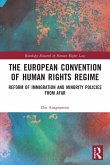Migration is one of the greatest societal challenges of our time. It has many facets, from mass movements to escape war, climate, or human rights abuses to the search for economic opportunity and prosperity. Illicit industries facilitate border crossings at the expense of safety, and governments face problems of processing and integrating new arrivals. These challenges have had a profound impact in Europe, calling into question central values of solidarity and human rights. This book analyses the law and policy of migration in the European Union (EU) and its relationship to understandings of the EU as an international human rights actor. It examines the role crisis plays in determining the priorities of migration policy and the impact political exigencies have on the rights of migrants.
This book problematises the EU Area of Freedom, Security, and Justice as a 'home.' Taking a governmentality approach to critique discourse, the idea of a holistic approach is deconstructed to explore notions of wellness, resilience, responsibilisation and externalisaton. The EU's pursuit of a holistic approach to managing migration in crisis indicates problems with EU solidarity, and the tactics employed to bring the crisis under control reveal security concerns that provoke questions about the EU as an international human rights actor. Both this framework for analysis and the empirical findings make a significant contribution to how the migration crisis can be theorised using adaptable conceptual tools. Under this form of governance, migration becomes a phenomenon to be treated so that its symptoms are ameliorated. This book will be of interest to students and scholars of the EU, migration, and human rights as well as policymakers, commentators, and activists in these areas.
This book problematises the EU Area of Freedom, Security, and Justice as a 'home.' Taking a governmentality approach to critique discourse, the idea of a holistic approach is deconstructed to explore notions of wellness, resilience, responsibilisation and externalisaton. The EU's pursuit of a holistic approach to managing migration in crisis indicates problems with EU solidarity, and the tactics employed to bring the crisis under control reveal security concerns that provoke questions about the EU as an international human rights actor. Both this framework for analysis and the empirical findings make a significant contribution to how the migration crisis can be theorised using adaptable conceptual tools. Under this form of governance, migration becomes a phenomenon to be treated so that its symptoms are ameliorated. This book will be of interest to students and scholars of the EU, migration, and human rights as well as policymakers, commentators, and activists in these areas.

